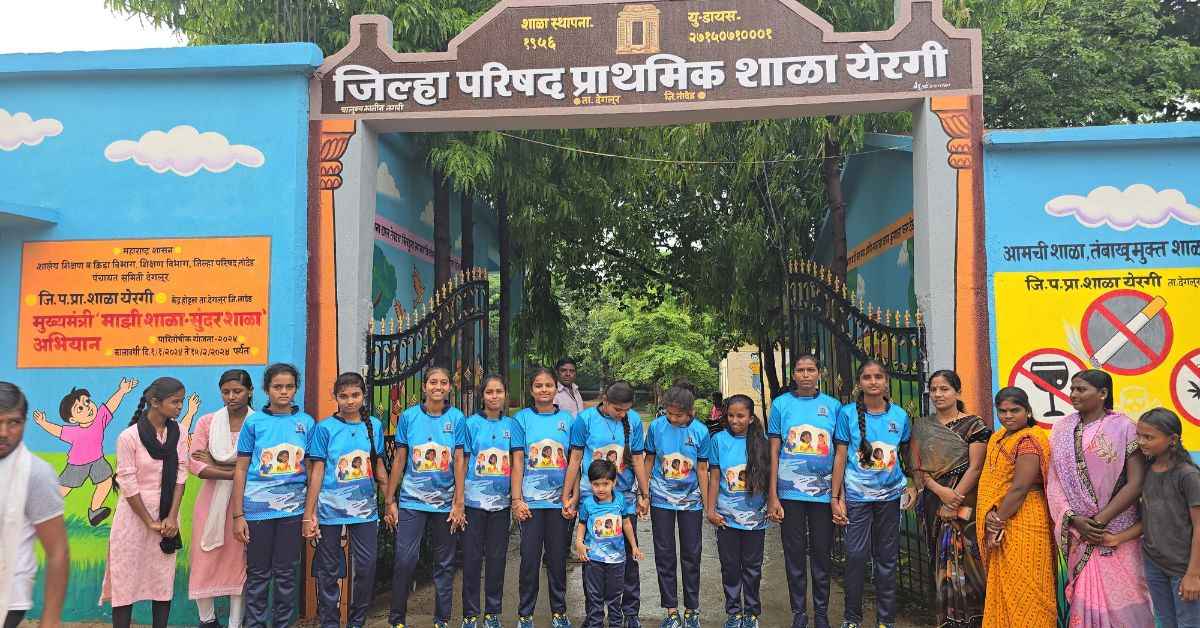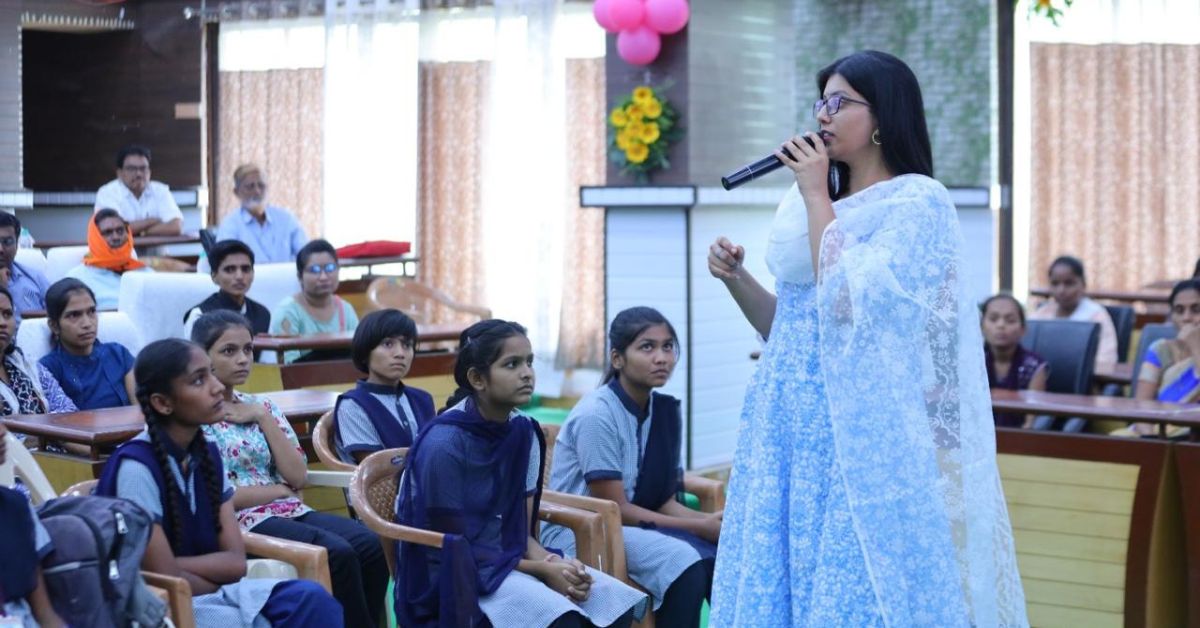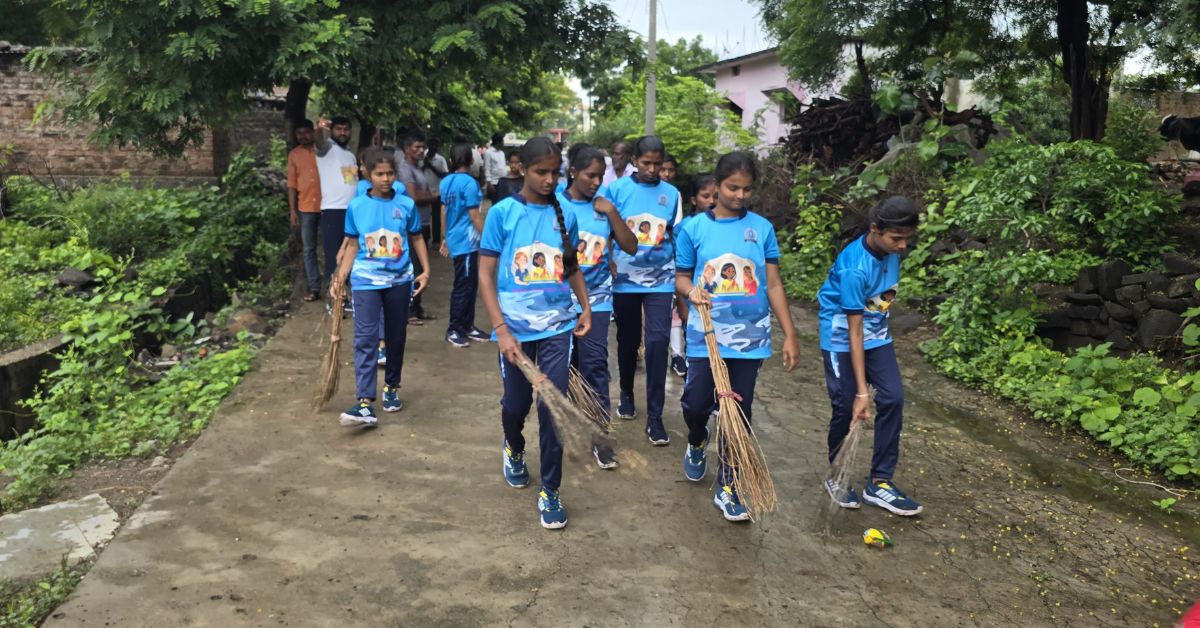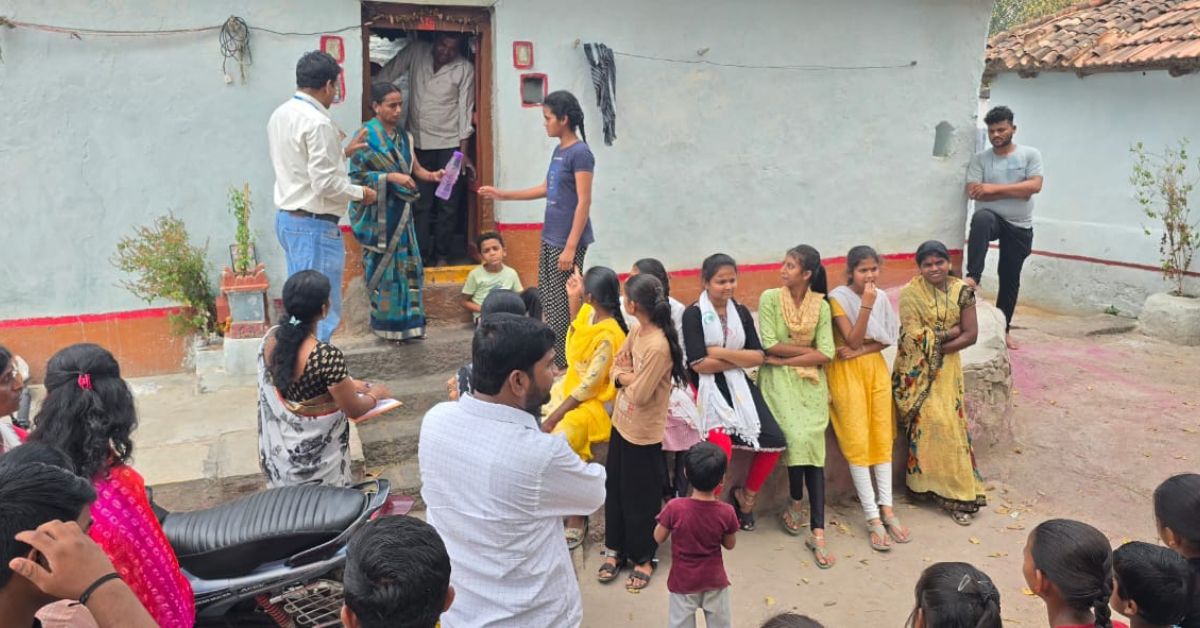In Nanded district, a group of young girls marched towards the lanes of Yergi village chanting slogans to eradicate the lymphatic filariasis – a parasitic disease commonly known as elephantiasis.
Caused by thread-like worms known as filarial parasites that are transmitted through the bites of infected mosquitos, it results in swollen legs or enlarged lymph nodes damaging the lymphatic system.
Unless patients take the DEC (Diethylcarbamazine citrate) and Albendazole drug, the disease continues to spread among the community in the infested area.
The Indian government has been distributing drugs that are safe to consume even for the non-infected. However, rural residents are usually sceptical and unaware.
At times, some villagers are even known to resort to indulging in dangerous practices like using venom or oils extracted from snakes or even provoking a scorpion to bite the inflamed organs of a patient.
But earlier in the year, villagers in Yergi village learned to develop a trust on the drugs when they saw these young girls consume them safely in front of the entire village.

“We had been requesting them to take medicines but they repeatedly refused. I got an idea to lead by example by first taking the medicine myself. We proved there was nothing wrong in taking it,” Mahadevi Banewar, a class 12 student, tells The Better India.
Known as the sarpanch of the ‘Balika Panchayat’, the 18-year-old along with her peer ward members and ‘sachiv’ (secretary) set out on the village roads to propose resolutions for village issues such as age-old infectious diseases, alcoholism, child marriages, and pollution.
The programme, spearheaded by IAS Minal Karanwal, has been empowering young rural girls by fostering leadership through local governance.
An army of young girls taking leadership roles
A 2019-batch IAS officer, Minal was appointed as the Chief Executive Officer (CEO) at the Nanded Zilla Parishad of Maharashtra last year. During a training session organised by the Ministry of Panchayati Raj at IIM Ahmedabad, she learned about the Balika Panchayat initiative.
“This programme was efficiently run by a village sarpanch in Kutch. I saw one of the members of this panchayat talking to the then Women and Child Development minister Smriti Irani about the developments in her village. I was so inspired to see the confidence in that girl,” she tells The Better India.
Inspired to reflect this pioneering approach in her district, the IAS officer launched it in February 2024. “I wished to mobilise the youth for their awareness and get them into the democratic understanding of how things work in a system as well as prepare potential voters,” she adds.

Minal identified 60 active gram panchayats in Nanded and conducted an orientation session. At least five young girls in the age group of 11 to 18 years in each 60 panchayats were identified to make a model ‘Balika Panchayat’ that mimics a regular gram panchayat with five officeholders. Among these, one acts as a sarpanch (village head).
“The slate was wide open and I asked them to write on it as they wished. I gave them a period of three months to implement the project on ground,” she explains.
“Considering their broad objective, they took most initiatives such as organising cleanliness drives in the village, getting the numbers and names fixed up on the members in the gram panchayats, organising meetings (gram sabhas), and more,” she says.
Interestingly, the girls started an entire campaign for alcohol ban in villages. For this, they went door-to-door to motivate people and explain the ill-effects of consuming liquor.
Sharing her experience of conducting such a campaign, Mahadevi says, “People would come home drunk and cause trouble for members in their homes. When young girls explained how their habit had been impacting the upbringing of their children, they were ashamed. But not everyone is as understanding, many people opposed us. However, we remained undeterred.”

Today, at least 300 such girls in Nanded are taking leadership roles to eradicate ill-practices from their villages.
When women take charge
Minal conducts monthly review meetings to check the progress of the initiative. She has also created a WhatsApp group comprising the village heads. “I constantly read their messages and appreciate their work to boost them. Sometimes, I give them some challenges to perform better,” she says.
“The impact of the work is that these young girls between 11 and 18 years have started demanding their rights from the government. They have started questioning authorities why eggs were not given in the mid-day meals, or holding them accountable for conducting regular health camps,” she adds.
“They are even asking why bicycles aren’t given to reach far-off schools. The initiation of such a conversation itself is a success for us. These girls tell me how villagers have started listening to them. Just developing such leadership was my ultimate aim,” adds the IAS officer.

But this feat has not been easier for the administration. “The entire idea of empowerment is least understood in villages. They question why they should invest in this project as it’s not an asset building program in the tangible sense, nobody is building a road, nobody is getting somebody to inaugurate it. There is no funding attached to the project. So, people naturally take less interest in it,” says Minal.
“We have to identify people who are motivated at the human resource front, who understand how important it is to build a human resource and thereby future leaders,” she adds.
To motivate other gram panchayats, Nanded district administration has also awarded gram panchayats – Yerdi, Sawargaon Mal, and Amgavhan – for efficiently running the initiative.
Mahadevi, who now talks about the importance of gender equality in the society, says, “We do not want to feel that we lag behind anyone, especially in a country where the president, finance minister, our sarpanch, and CEO are women. We do not feel any less. I aspire to become a sarpanch and lead my village one day.”
Seeing the success of the first phase, Minal has recently launched the second phase of the project in June. “The second leg of Balika Panchayat focuses on suggesting resolutions for gram panchayats. Our next goal is to see how these girls start giving resolutions with unanimity,” she says.
Personally, this initiative has been immensely satisfying for Minal. “This initiative has been very fulfilling as it is apart from my routine work. If we could implement an idea on the grassroots where young rural girls feel confident and empowered in taking leadership roles in the male-dominated society, then we have already started achieving transformation,” she adds.
Edited by Padmashree Pande. All photos: Minal Karanwal.
No comments:
Post a Comment